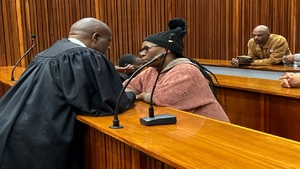He highlighted deepening inequality, growing political instability, and rising public frustration as key factors eroding trust in democratic governance.
Speaking at a high-level dialogue hosted at South Africa’s Department of International Relations and Cooperation Conference Centre in Pretoria, Hamdok said many people feel democracy has not delivered the improvements they were promised,particularly when it comes to economic opportunity and quality of life.
“For many, inequality remains a serious and unaddressed challenge, both within and between nations,” he noted. “We can no longer avoid a deeper discussion about how democracy, development and peace are interconnected, and how the state and market can better serve the people.”
His remarks come as several countries in the Global South face mounting internal pressure. Hamdok pointed to a worldwide trend in which liberal democracies are under strain, with economic hardship, polarisation and political gridlock fuelling the rise of nationalist and populist movements across the spectrum.
“What we’re witnessing in many parts of the world is a rollback of democratic gains. Without serious reflection and reform, public confidence in democratic institutions will continue to decline,” he warned.
--ChannelAfrica--













